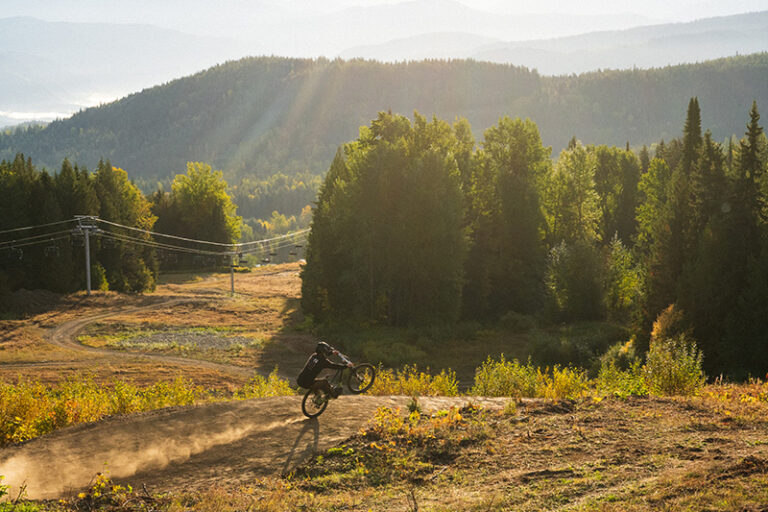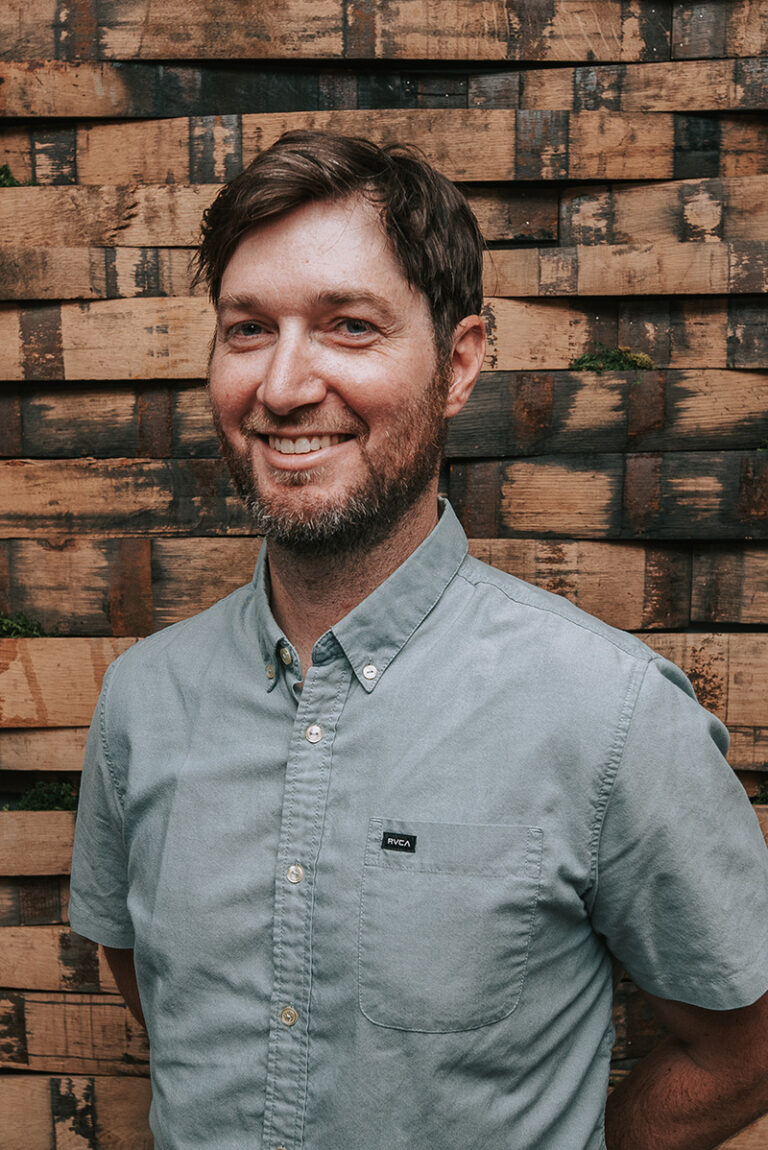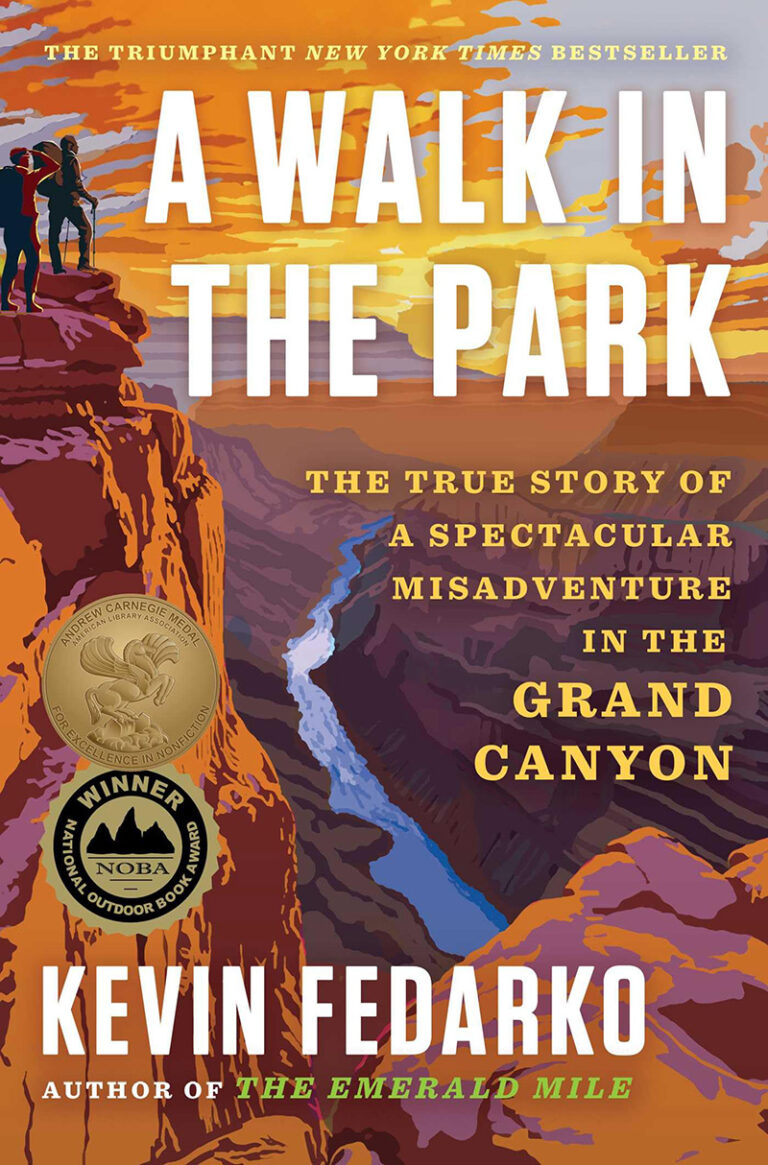Triathletes can seem almost superhuman. The average person often marvels at their ability to swim then bike then run—especially in grueling long races like the Ironman (2.4-mile swim, 112-mile bike, 26.2-mile run). To succeed at such feats, elite triathletes (pros) and devoted age groupers (amateurs) often pour hours daily into training. A two-workout day might be considered an “easy” day. And they spend their money on triathlon gear and travel to out-of-state or out-of-country races. Many do all of that while enrolled as full-time students, working a job or two, and spending time with spouses and kids.
The beauty of triathlon, though, is that the sport is open to all. You need not be ready to race an Ironman; anyone can sign up for a race, borrow gear, train a little, and see what happens. Many of today’s pros have their own tales of less-than-stellar beginnings, when their training was inadequate, their gear was poor, and they were terrified of an open-water swim.
The truth is, even the elites are just regular people—most just started out at the bottom and figured out how to devote the time it takes to do the sport they love.
Out There Monthly found seven local tri rockstars—four pros and three amateurs who are tops in their age groups. All are a little bit superhuman and a lot ordinary at the same time.
HALEY COOPER
• 30; from Spokane; professional
• PR (personal record): 9 hours 42 minutes
(Ironman Coeur d’Alene, 2010)
• Doctoral student at EWU (physical therapy); married
TRIATHLON ACCOMPLISHMENTS
• Several top 5 overall finishes at the
Ironman distance (four of those at Ironman Coeur d’Alene)
• 8th in the ITU (International Triathlon Union) Long Distance Triathlon World Championships (2010)
• Raced in Kona (Ironman World Championships)
the last four years
HOW DID YOU GET INTO THE SPORT?
I was living in New Zealand [after college in 2004] and had already done some marathons. I had a bike, and I liked to ride it. I wasn’t much of a swimmer, but they had a women’s-only tri kind of like the Valley Girl here. I did it and got a flat tire during the race. Afterward they were giving away a bike, and I won it. I thought, well, now I have a bike, and I should probably do this sport.
WHAT ARE SOME OF THE CHALLENGES
YOU HAVE FACED?
I started physical therapy school this year. It’s more time management than I’ve ever had to do before. I’d say the challenge is having the mental energy to compete and to spend that much time doing class work. But my life is pretty conducive to all of this, so I can’t complain too much. I have a supportive family and everything, so I’m lucky.
WHAT IS YOUR TRAINING REGIMEN?
During Ironman training, it’s about 20 hours per week. During the winter, it’s more like 10-15. Every week is different in terms of what I’m building for and what race—and what aspect of what race—I’m working on.
WHAT ARE YOUR FUTURE GOALS?
I really like to do well at Ironman Coeur d’Alene. It’s my hometown race; I love the course. And I suppose my goal is just to keep improving. I’d really like to go under an hour in the swim, finally, and get my marathon time a little faster. But I’ll probably be saying that until the day I die.
JOSH HADWAY
• 23; from Spokane; professional
• PR: 4 hours 15 minutes (Half Ironman)
• Works at Runner’s Soul; student at EWU
HOW DID YOU GET INTO THE SPORT?
I grew up in a running family—my dad is the head cross-country coach at Ferris. Two or three years ago I did a duathlon and loved it. I was hooked. In 2008, I did my first tri. I was terrified of swimming, but someone convinced me to suck it up and try it, so I did. This will be my first year racing professionally.
TRIATHLON ACCOMPLISHMENTS
One of the things I’m most proud of is just learning how to swim—I was so afraid of it and bad at it. Another accomplishment was the Ironman Lake Stevens 70.3 (Half Ironman). [He finished in 4 hours 15 minutes.] That’s what got me my pro card.
WHAT IS YOUR TRAINING REGIMEN?
I run six days a week, bike six days a week, and swim five days a week. On easy days, I do two workouts a day. On the other days, I do three workouts a day. I start in January with those types of hours.
WHAT ARE YOUR FUTURE GOALS?
The Half Ironman is my focus right now. As I get older, I’ll progress to the Ironman distance. I would like to eventually qualify for the Half Ironman World Championship.
WHAT ADVICE WOULD YOU OFFER A ROOKIE TRIATHLETE?
Have fun with it. There are a lot of sprints and Olympic distance races—take your time and enjoy getting into it. Do it because you love it; don’t jump into an Ironman. And find a club or group of people to train with. I’m in a club, Tri-Fusion. There are a lot of local races—like the Medical Lake Trailblazer, WunderWoman, Valley Girl—where everyone’s really supportive. They have a really relaxed kind of atmosphere.
ANNIE WARNER
• 31; from Spokane; professional
• PR: under 2 hours (Olympic distance)
• Works as a swim coach and bookkeeper;
married
TRIATHLON ACCOMPLISHMENTS
• 1st place in the New Orleans 5150 Olympic distance Triathlon (May 15, 2011)
• 3rd in the Rev 3 Costa Rica Olympic Distance race (February 2011)
• Won the Triathlon at Pacific Grove and Tinley’s Triathlon (2010)—“Those were
coming back from a hip injury, so it was nice to know I could run without pain,” says Warner.
HOW DID YOU GET INTO THE SPORT?
I grew up swimming for Spokane Area Swimming and then swam in college. Later I was looking for a way to stay in shape, and my dad had done triathlons. Then I kind of got hooked, I guess.
WHAT IS THE BEST THING ABOUT
TRIATHLON?
I like being able to push myself. I like the healthy lifestyle it leads to. And it’s just a great group of people who do triathlons. It’s great to see new people racing for the first time and how empowered they are.
WHAT IS YOUR TRAINING REGIMEN?
I usually swim four days a week, probably ride 5-6 times a week (up to 3.5 hours on the bike), run probably 4-5 days a week, various lengths, and do some yoga, lifting and core work.
WHAT ARE YOUR FUTURE GOALS?
I’ll be going to Memphis [the weekend of May 21-22] to do another Olympic distance in the [5150 Triathlon] series. I’d like to qualify for the championship for that series.
WHAT ARE SOME OF THE CHALLENGES OF TRIATHLON COMPETITION?
I just got back from Wildflower [a triathlon in California]. It’s hard to know what will happen when you drive 18-20 hours for a race. My bike fell off the rack and was hanging on by a wheel. My friend has a severe peanut allergy, and there was a peanut in her food, so I had to spend part of the night with her in the E.R. But I placed
9th. I was happy to be in the top 10, so it was
a good race.
KALEN DARLING
• 23; in Spokane since 2009 (previously lived in Hawaii); professional
• PR: 1 hour 58 minutes (Olympic distance)
• Recently graduated from Whitworth University (May 2011)
TRIATHLON ACCOMPLISHMENTS
• Won the U23 division of the USA Triathlon Elite National Championship (2011)
HOW DID YOU GET INTO THE SPORT?
At first, I went to tri competitions as part of a relay—I would do the swimming part or the running part. Eventually I wanted to try one by myself. The first one was a lot of fun, but it was painful. I didn’t do any training. I just went out there and did it on my mom’s old mountain bike. I think I walked the entire run. The amateur world championship came to Hawaii in 2005, and I started training really hard. When I saw the payoff—I won a silver medal for my age group—I was like, Oh wow, this is cool.
WHAT ARE SOME OF THE CHALLENGES YOU HAVE FACED?
My senior year of high school I had a hernia. The doctor said there was a chance I wouldn’t be able to exercise again because of nerve damage from the surgery. I overcame that obstacle just by being patient. The summer after that I was able to qualify for my pro card.
WHAT COMPETITIONS DO YOU HAVE
COMING UP THIS YEAR?
I’ll probably do around a dozen professional races between now and November. I’ll be traveling quite a bit—Canada; Washington, D.C.; Tunica, Mississippi; New York City; Georgia; Florida; Nevada; South Carolina; possibly Mexico; possibly Korea. Those last two are World Cups—those are the races that get you into the Olympics or that help you qualify for the Olympics. I haven’t qualified for those, so that’s why I say possibly.
WHAT ARE YOUR FUTURE GOALS?
[Answered just before graduating in May 2011] Because of school, I only really get serious about tris for about three months over the summer. I’m not 100 percent sure of what I’m capable of. My goal is to make triathlon a career and see if I can qualify for the Olympics in 2016.
TROY NELSON
• 43; in Spokane since 1994; age grouper
• PR: 9 hours 45 minutes
(Ironman Coeur d’Alene, 2008)
• Trial Lawyer; married to Eve Nelson, 2 kids
TRIATHLON ACCOMPLISHMENTS
• 9 hours 45 minutes in Ironman Coeur d’Alene
• 9 hours 58 minutes in Kona
HOW DID YOU GET INTO THE SPORT?
It must have been 2005 when Eve dragged me, literally, to Coeur d’Alene to watch the Ironman. It was the year they had a bunch of blind athletes on the course and I was just like, my gosh, what’s my excuse? If these dudes are out there freakin’ doing this, then what the heck is wrong with me? I remember saying to Eve, “Well, if you’re not signing up for next year, I am!”
HOW DO YOU BALANCE WORK, LIFE AND TRIATHLON?
Since 2006, Eve and I have alternated years of [training for and competing in] Ironman. This is her year. This is how we do this in our family, having the kids, both of us with full-time jobs: Tomorrow [Saturday] I’ll get up very early and go on my long run. I’ll get home in time for Eve to pack the car—she’s going for a 120-mile bike ride. I’ll clean the house, grocery shop, take the kids to do something fun, then get home and make dinner for Eve. And she does that for me when it’s my turn.
WHAT ADVICE WOULD YOU OFFER A ROOKIE TRIATHLETE?
Find yourself a good bike shop like Fitness Fanatics, maybe hire a swim coach if you don’t know how to swim, and then just sign up before you invest a lot of money. There are lots of great races here in Spokane—the Spokane Triathlon, Valley Girl and WunderWoman. I would encourage a person to sign up with one of the three triathlon teams here (Emde Sports/Fitness Fanatics, Team Blaze or Tri-Fusion). The collective wisdom of being on a team, the encouragement, the training opportunities—that would be money well spent for a person who’s starting out.
EVE NELSON
• 44; in Spokane since 1994; age grouper
• PR: 11 hours (Ironman); 2 hours 15 minutes (Olympic distance)
• Senior Transportation Planner with the Spokane Regional Transportation Council;
married to Troy Nelson, 2 kids
TRIATHLON ACCOMPLISHMENTS
• Fourth place in the age group nationals
(Olympic distance)
• Qualifying for and racing in Kona (2009)
HOW DID YOU GET INTO THE SPORT?
I was 37 years old. I had an infant and a toddler at home and I was looking for some peace and quiet. I borrowed a bike. During the race, I was unable to shift the entire time. But I was hooked. That was it, one race, and I knew it was for me. That was in Medical Lake, a sprint triathlon.
WHAT ARE SOME OF THE CHALLENGES
YOU HAVE FACED?
The hardest part for me is fitting into a day what I need to do. I’m very fortunate to have a spouse who understands it, but it’s a double-edged sword because he needs to train too. The two hours we spend together, we’re either talking about the kids or inhaling food. Planning enough time for family time is an obstacle. That has to get planned out, or it will get missed.
WHAT IS YOUR TRAINING REGIMEN?
In the off-season, I probably train about ten hours a week. It’s closer to 17-20 hours when I’m in race season. I prefer the Olympic distance and I like half irons. It fits more into your life in terms of training. It’s not quite so excessive.
WHAT IS THE BEST THING ABOUT
TRIATHLON?
Living here in Spokane, there are so many good athletes. It’s a fraternity, because you go out and suffer together when you train. To be around new people who just have an incredible spirit about it is a lot of fun. It’s kind of what keeps you going. I’ve developed some of the best friendships of my life doing this.
WHAT ARE YOUR FUTURE GOALS?
My goal this year is to try to qualify for Kona again. I don’t know what I’m going to do next year. I just try to take it one year at a time.
ROGER THOMPSON
• 39; from Spokane; age grouper
• PR: 1:53:54 (Olympic distance)
• Teacher; married, 2 kids
TRIATHLON ACCOMPLISHMENTS
• Racing on Team USA in a couple of World Championships
• Racing in Kona
• Being a member of the TIMEX Multisport Team
• Being president of Tri-Fusion (local triathlon club) for five years
HOW DID YOU GET INTO THE SPORT?
I started in multisport in 1989 when I did a few duathlons (run/bike/run) on a team with a friend. In 1997-1998 my wife, Jessi, and I traveled all over the nation racing US Triathlon Series events and other recognized events. I took a hiatus from triathlon until 2003 when Ironman Coeur d’Alene was coming. After “getting through” that event, I started racing more seriously. In 2008, I qualified to race as an elite; 2009 was a very successful season and I planned on hitting 2010 hard. Unfortunately, I was hit by a car in May, and that ended the 2010 triathlon season due to a separated shoulder.
HOW DO YOU BALANCE WORK, LIFE
AND TRIATHLON?
For me, my family is number one. We sit down weekly and see what the family calendar looks like. After we get all the important events filled in, I schedule my training around that. There are times that the training doesn’t happen because my daughter needs extra help with a school project or my wife and I schedule an impromptu coffee date, but there’s no question what I’d choose every time. If I were to miss my daughter’s swim meet to fit in my long ride, I would deeply regret that.
HOW DOES THIS COMMUNITY GIVE TO ITS ATHLETES, AND VICE VERSA?
Spokane and the Inland Northwest have been exploding with race opportunities. It’s because of race directors that triathlon is so popular in our area. My hat goes off to the race directors who help promote the sport and give the community the opportunity to participate.
Personally, I have been involved in a leadership role in a non-profit triathlon club called Tri-Fusion (www.tri-fusion.com). Along with leadership of the club, I help to put on free informational clinics about triathlon to members, as well as community sporting events like a 5k run series and a kids’ triathlon each summer. I believe that we, as athletes, have a responsibility to give back to the community. Many people know very little about the sport and are looking for avenues that can give them support. Triathlon is a very lonely sport. But none of us could possibly do it alone.
TRIATHLON GLOSSARY
• Triathlon: A sport involving three athletic disciplines in succession, e.g. swimming, cycling and running
• Sprint Distance: 750M swim, 20K bike, 5K run (lengths may vary)
• Olympic Distance: 1.5K swim, 40K bike, 10K run
• Ironman: 3.8K swim, 180K bike, 42.2K (26.2 miles/marathon) run
• Kona: Ironman World Championship, held in Kona, Hawaii
• “Professional” or “Elite”: Triathletes have to qualify, based on their performance in
specified races, to become “elite” or “professional”
• Age grouper: Amateur triathlete













